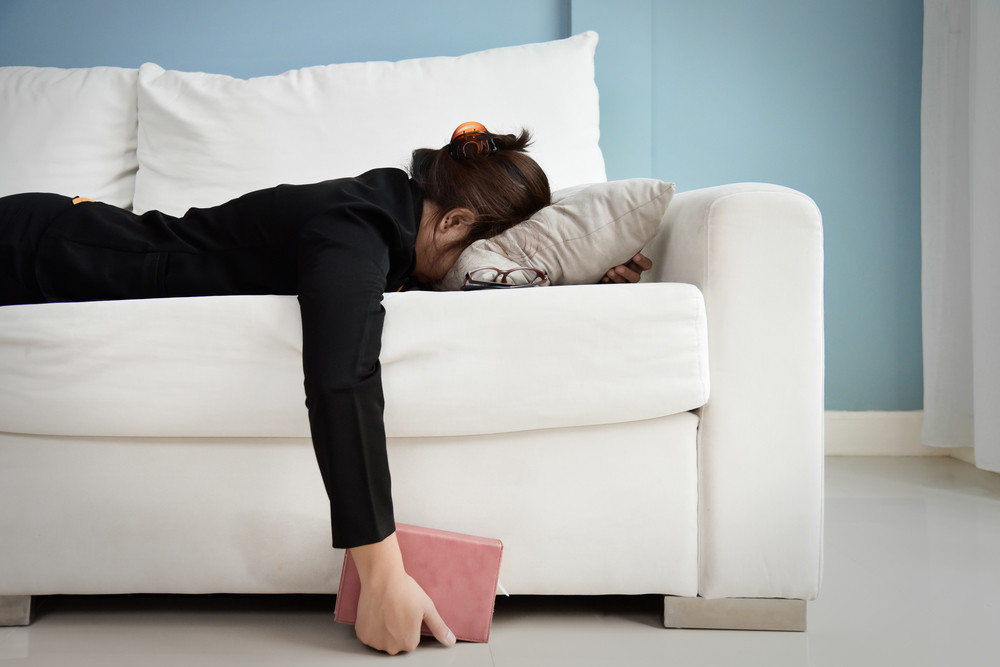Popular Reads
Top Results
Can't find what you're looking for?
View all search resultsPopular Reads
Top Results
Can't find what you're looking for?
View all search resultsWorking from home? Why detachment is crucial for mental health
A key element of replenishing vital mental energy, and reducing the negative effects of self control is what we call “psychological detachment” This refers to the act of mentally switching off from work during time off, and requires the absence of all work-related thoughts and activities.
Change text size
Gift Premium Articles
to Anyone
A
s an academic who regularly worked from home in the days before coronavirus, my friends often joked about what they imagined my daily routine might be (such as enjoying a morning gin and not changing out of my pajamas). But as many people now realize, the reality is quite different. Working from home can be quite a challenge.
But why? Research in occupational health psychology suggests one important answer which is all about self-control – the ability to suppress intruding thoughts, behaviors, and emotions which are not relevant or helpful for achieving a goal. Away from work, that may be as simple as refraining from eating a chocolate bar when on a diet, or sticking to a training regime before running a marathon.
But while self-control leads to positive outcomes in many aspects of life, such as career success or more stable relationships, my research has also found that frequent acts of self-control can have a negative impact on mental health and well-being.
What psychologists refer to as the “strength model” of self-control offers an explanation for this. It suggests that just like using a muscle requires physical energy, engaging in self-control consumes mental energy.
The more we practice it, the more likely it is to lead to mental exhaustion and associated unhealthy behaviors such as alcohol consumption, snacking, or getting into arguments.
Working from home can require considerable self-control. Whereas our “normal” work environments – offices, factories, shops – are set up to effectively engage in work, for many employees, home environments are not.
When working from home can mean adapting to new technologies, changing forms of communication, resisting distractions from family members, pets, or mundane household activities, or keeping up motivation when the sun is shining outside. Overcoming these demands and engaging in work requires self control, which in turn depletes mental energy levels.
The importance of detachment
A key element of replenishing vital mental energy, and reducing the negative effects of self control is what we call “psychological detachment” This refers to the act of mentally switching off from work during time off, and requires the absence of all work-related thoughts and activities.
While the simple act of leaving the office after work immediately helps detachment, this clearly becomes much more difficult when working from home. So it is vitally important to actively manage boundaries between work and non-work time to allow for that kind of detachment.
To begin with, managing work time is key, as remote workers tend to work longer hours compared to office workers. Physical boundaries between the professional and domestic aspects of your life are also helpful, as is committing to time where you don’t communicate (or even think) about work, and immersive and enjoyable activities which require concentration.
Here are some tips on how to enhance mental health and well-being when working from home:
- Set up a dedicated workspace, which should be as free from distractions as possible.
- Develop a schedule, which includes phases of focused work as well as breaks.
- If possible, divide and share times dedicated to child and pet care.
- Organize your email communication and reserve dedicated times for responding to emails.
- Try to establish simple routines which don’t require any self-control, such as a coffee break or starting your working day with an easy routine task.
- Set up dedicated times for work and leisure – and stick to these times.
- Refrain from setting impromptu goals (such as, “I will stop working once I finish this task”) as deadlines for finishing work.
- If possible, work in a different room than the one you spend your leisure time in. Particularly avoid working in your bedroom as it may remind you of work-related issues, preventing detachment when you go to sleep. (If you don’t have the option of a different room, then try to tidy away everything that may remind you of work.)
- Refrain from all forms of work-related communication during non-work time.
- Engage in absorbing activities, which capture your full attention after work. Good examples include exercise, cooking, mindfulness meditation, or focused playing with your children or pets.
Generally, self-control is crucial for adapting to changes in our environment. In light of the considerable requirements now in place for self-control during lockdown, employees need to be conscious of not using up their mental resources. They need to regularly engage in “recovery experiences” including psychological detachment to maintain and enhance their mental health and wellbeing.
***
Wladislaw Rivkin is Lecturer in Work and Organisational Psychology, Aston University.
This article is republished from The Conversation under a Creative Commons license. Read the original article.











